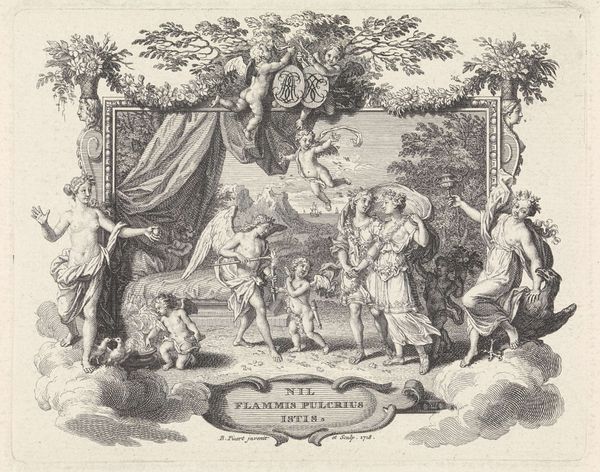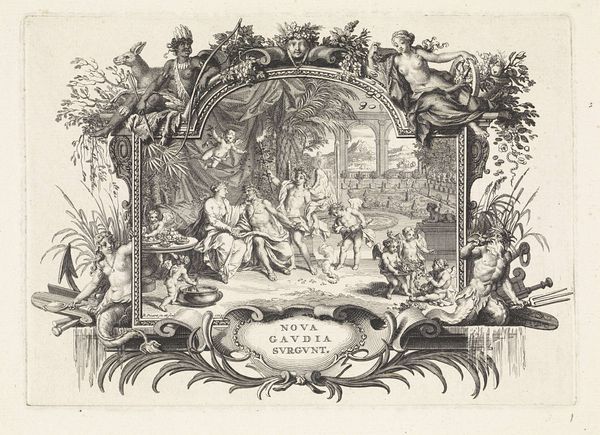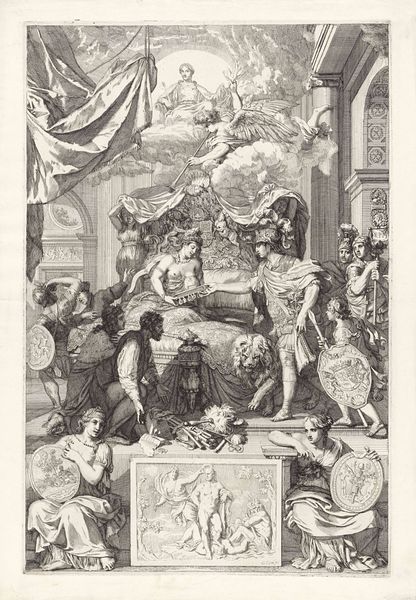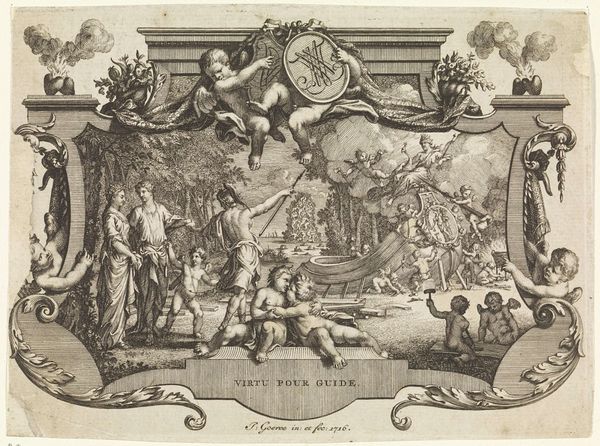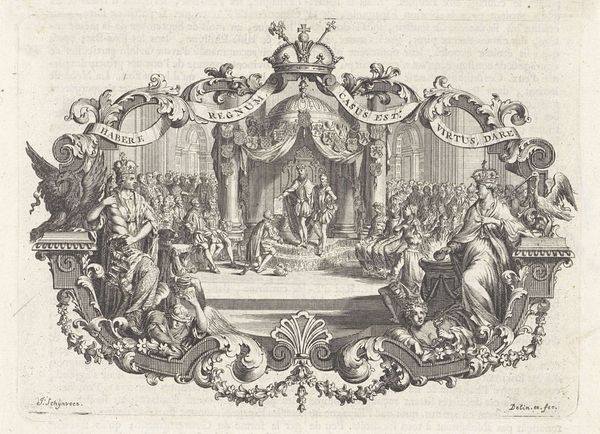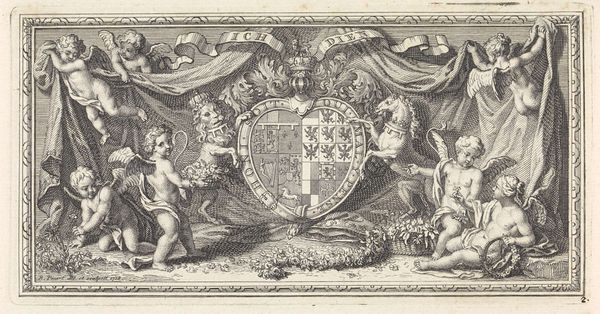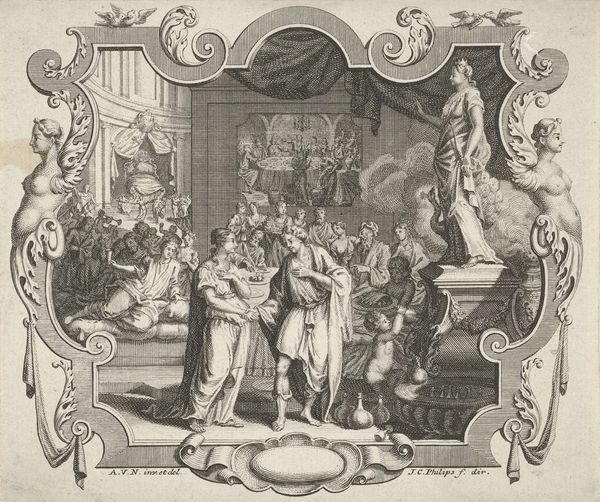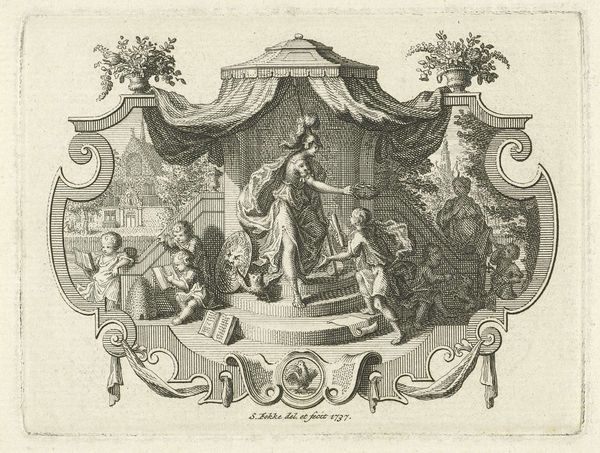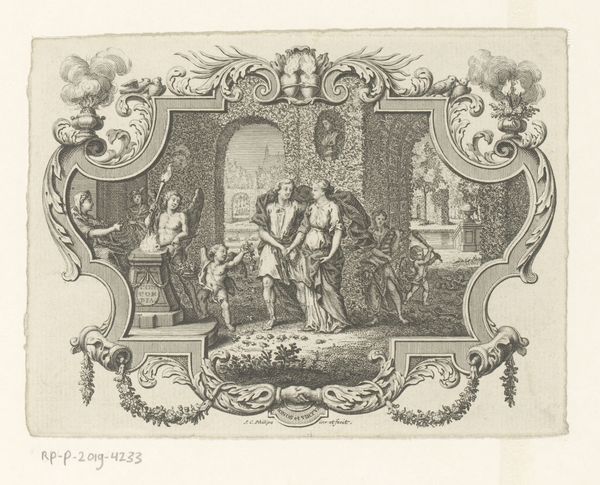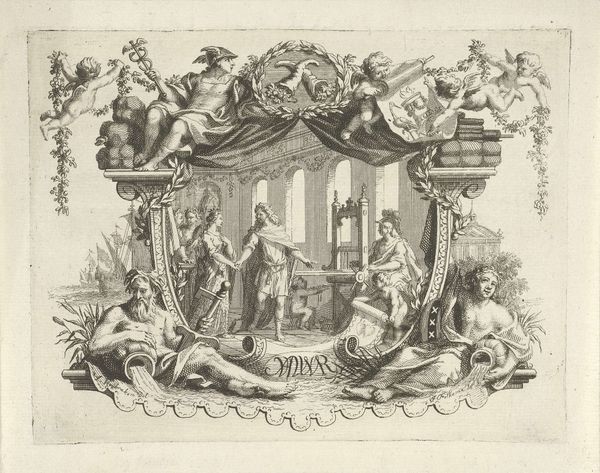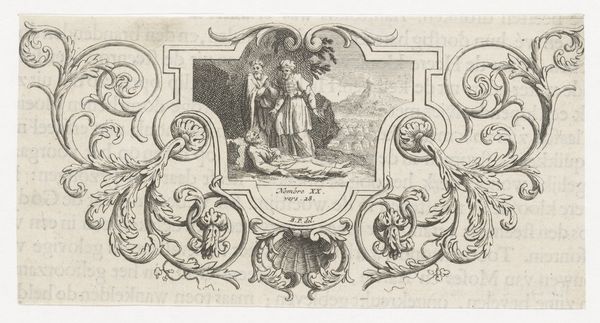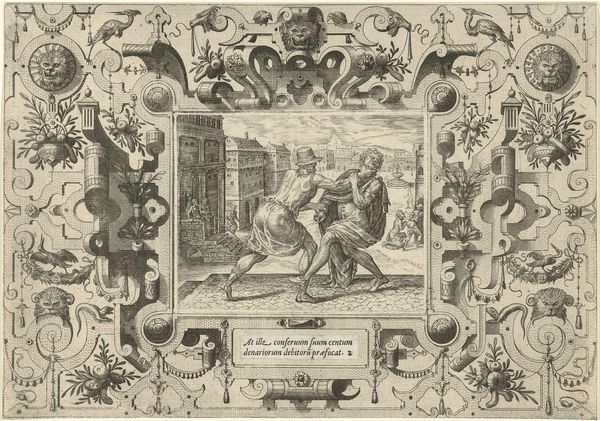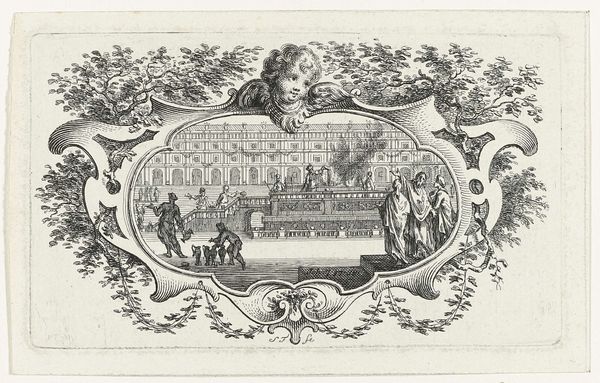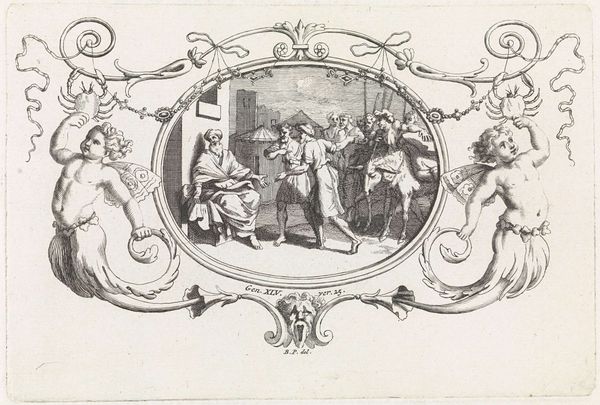
print, engraving
#
allegory
#
baroque
# print
#
old engraving style
#
figuration
#
sketchwork
#
pen-ink sketch
#
line
#
pen work
#
history-painting
#
engraving
Dimensions: height 105 mm, width 147 mm
Copyright: Rijks Museum: Open Domain
Editor: This is "Allegorische voorstelling 'Minerva Duce'," an engraving made in 1727 by Frederik Ottens, currently housed in the Rijksmuseum. The rendering is beautiful, but there is something about the subject matter I do not fully grasp. What do you see in this piece? Curator: It is fascinating, isn't it? Beyond the Baroque style and allegorical theme, let's consider what Minerva, the Roman goddess of wisdom and strategic warfare, represented in the 18th century. Often, these depictions were linked to societal ideals, especially regarding knowledge and power. Who benefits from knowledge? Who is denied it? These are important questions we need to ask when we look at historical representations of such figures. Notice also the cherubs carrying books, almost laboriously; is this perhaps commentary on access to knowledge and the weight of tradition? Editor: That's a fascinating perspective. So, beyond a simple celebration of wisdom, this could be interpreted as a commentary on the accessibility and burden of knowledge? The racial diversity of the cherubs might also relate to the accessibility you mention? Curator: Precisely. The seemingly innocent image contains multitudes, particularly if we consider it within the socio-political context of the Enlightenment. The depiction of the figures and city architecture is idealised, however that would necessarily correlate to actual contemporary demographics. Do you think it is a reflection on access to opportunity and knowledge? Editor: I had not considered it that way, but now it's a really insightful and complex piece, hinting at deeper questions about power and knowledge beyond its surface representation of wisdom. Curator: Indeed. Examining art through the lens of its time reveals the complex interplay of power, identity, and social commentary that often lies beneath the surface.
Comments
No comments
Be the first to comment and join the conversation on the ultimate creative platform.
